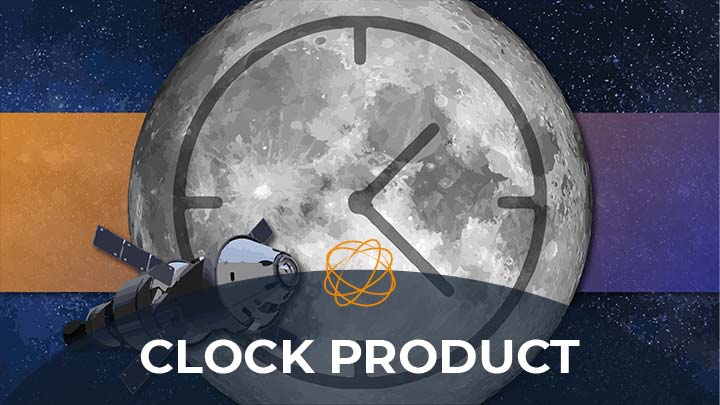Clock Product Committee
Established: 2003
Chair: Michael Coleman
Charter: Clock Products Committee Charter
Charter
Background
The “IGS/BIPM Pilot Project to Study Accurate Time and Frequency Comparisons using GPS Phase and Code Measurements” was created jointly by the International GNSS Service (IGS) and the Bureau International des Poids et Mesures (BIPM) in 1998. The main goal was to investigate and develop operational strategies to exploit geodetic GPS methods for improved global availability of accurate time/frequency comparisons.
Generally, activities fell into four areas: deployment of geodetic receivers at more timing laboratories and improved installations for timing applications; extending the IGS clock products to include tracking receivers as well as satellite clocks; developing methods to accurately calibrate the internal instrumental delays in GPS tracking equipment; and promoting comparisons of geodetic clock estimates with those of independent techniques.
Given that the development goals of the IGS/BIPM Pilot Project were generally completed by 2002, it was succeeded by this IGS Clock Products Working Group (CPWG), effective 01 January 2003. In this way, the time/frequency transfer activities of the IGS were assimilated into the regular operations of the organization. It is recognized, however, that the corresponding activity within the BIPM and the international timing community may continue for a longer period in the deployment, development, and evaluation stage. Close cooperation and interaction between the IGS and BIPM are therefore essential and mutually beneficial. The appointment of BIPM representatives to the IGS Governing Board and to the CPWG acknowledge this importance.
The CPWG may find interest in and become involved with analysis and production of clock products across all constellations including: GPS, GLONASS, Galileo, Beidou, QZSS and IRNSS. Expansion into official multi-GNSS clock products would serve to benefit the broader user community.
Goals and Responsibilities
The Working Group is responsible for coordinating all aspects of time and frequency transfer operations within the IGS and for cooperative activities with the BIPM, timing laboratories, and other external timing organizations. The central objective is to maintain and improve the suite of IGS clock and related products, ensuring the highest quality is continuously available to the user community. The Working Group establishes appropriate conventions and standards to perform its timing functions, in close collaboration with the IGS Analysis Centers and Analysis Coordinator.
It is expected that IGS clock products will conform to internationally recognized standards to the fullest extent possible, including close alignment to the UTC/TAI time scale maintained by the BIPM. Station operators should be promptly informed of any diagnostic results that may be discerned from the clock analysis results.
In addition to the main clock products, the Working Group should provide users with all ancillary data and services needed for their full utilization. The CPWG should maintain a comprehensive, public website and should prepare all appropriate reports and other publications.
Clock Products Coordinator
The CPWG is chaired by the IGS Clock Products Coordinator (CPC), who is solicited and appointed by the IGS Governing Board (GB). The CPC is responsible for the day-to-day functions of the CPWG. The most important operational requirement is to ensure that all designated clock products are routinely generated and available to the user community, consistent with the standards and specifications established by the CPWG. The CPC is specifically responsible for ensuring that clock exchange process (the point at which the reference time is established for a main IGS product) takes place for each processing action.
The CPC is a voting member of the GB (by virtue of exercising a coordinator’s role), represents this WG at the GB, and is responsible for representing the IGS to external organizations in all matters concerning timing subject to GNSS.
Clock Product Generation
Each IGS analysis center (AC) commits clock solutions to the analysis center coordinator (ACC) for combination into the published clock products. The main IGS clock products are formed by the IGS clock combination software and consist of:
- IGS Final Clock Solution published once weekly
- IGS Rapid Clock Solution published once daily
- IGS Ultra-Rapid Clock Solution published 4 times daily
Each AC decides whether to participate in any/all of the clock products. The scope and quality of the clock solution committed is the responsibility of each AC. The CPWG and ACC can advise ACs on the clock solutions committed, but are ultimately responsible for working with the solutions provided.
The CPWG may augment the clock products with its own analysis should the need arise for product improvement. Any such additions must be coordinated with the ACC and should be reviewed by the GB.
Working Group Membership
See Clock Product Members tab.
Auxiliary File
A file separate from this charter is maintained with the current AC contributions as well as the membership list.
The CPC should make an annual call to ACs to confirm or update the list of clock solutions contributed to the IGS ACC. The membership list is confirmed every four years in accordance with the Terms of Service (section VII).
Terms of Service
The membership of the CPWG will be reviewed and updated every four years. At that same time, the commitment of the CPC to continue will be either reconfirmed or a successor will be solicited. The status of the CPWG should be reviewed by the IGS GB at least every two years.
Download Clock Products Working Group Charter
[Revised Dec 2019]
Members
The CPWG consists of members representing organizations or institutes that: provide solutions that support the creation of clock products; contribute to the production or release of clock products; maintain or disseminate official UTC service; or, are users of the IGS clock products. In addition, the membership strives to include this expertise from an academically and geopolitically diverse group.
In addition to communication with the CB and GB, the CPWG should also keep close contact of its activities with other relevant IGS WGs. This communication should include, but is not limited to: the Bias and Calibration WG and the PPP–AR WG. If possible, the CPWG membership should include members of these WGs.
The membership is presently designated to consist of:
Ex Officio Members:
- Current chair of the WG ;
- Immediate past chair of the WG;
- IGS Analysis Center Coordinator(s);
- BIPM representative to the IGS GB
Representatives:
- One from the IGS CB;
- One from each analysis center producing clock products;
- One from any UTC(k) timing center which also serves as an IGS network site; up to six such representatives to be invited and appointed by the chair.
At-Large: Up to six at-large members, each as recommended by any member of the CPWG and with consultation of the existing WG, may be appointed by the chair.
[Revised 2020]
Documents
Formats
| clock RINEX 3.04 | station and satellite clock solutions |
| clock RINEX 3.02 | station and satellite clock solutions |
| clock RINEX 3.00 | station and satellite clock solutions |
Last Updated on 6 Feb 2024 16:48 UTC


